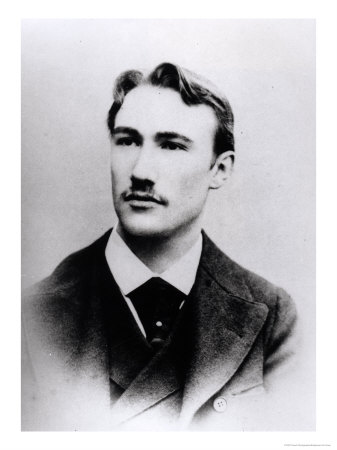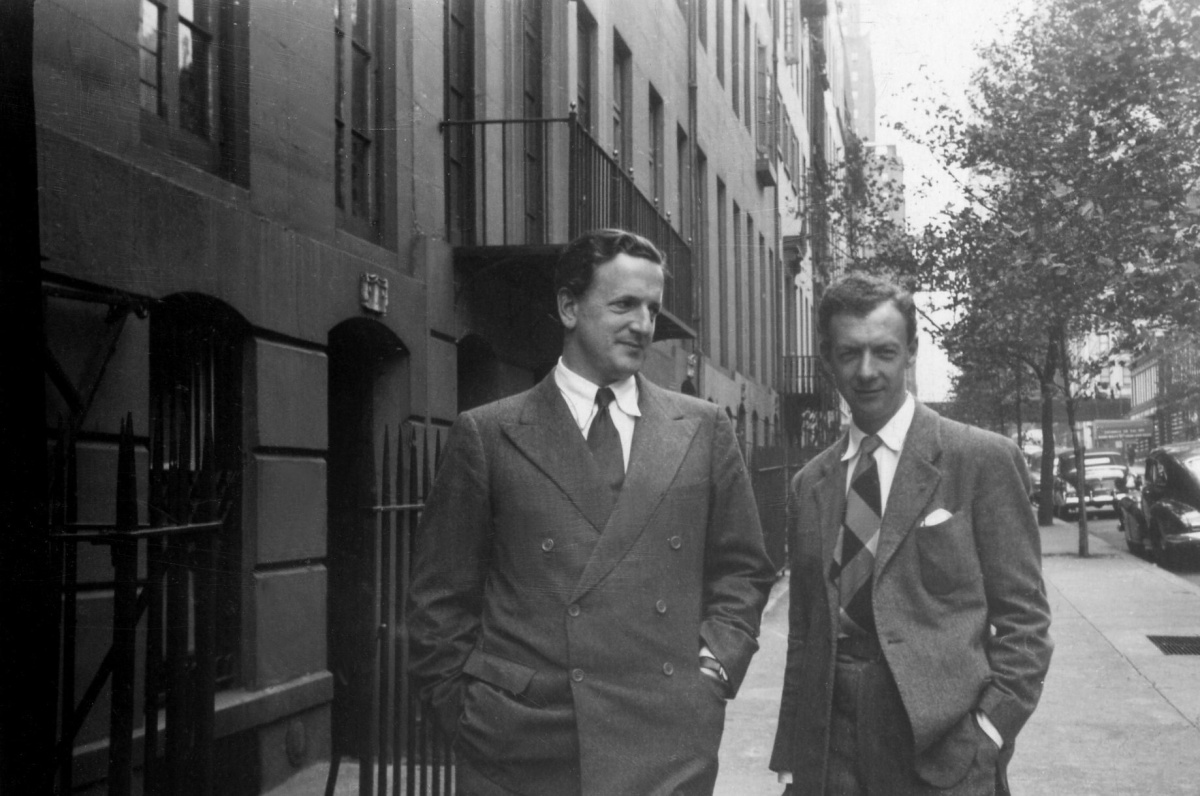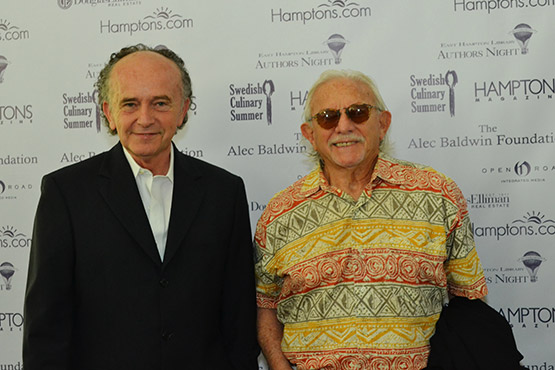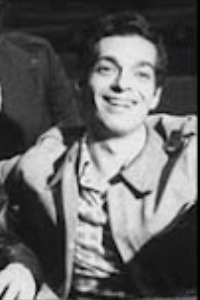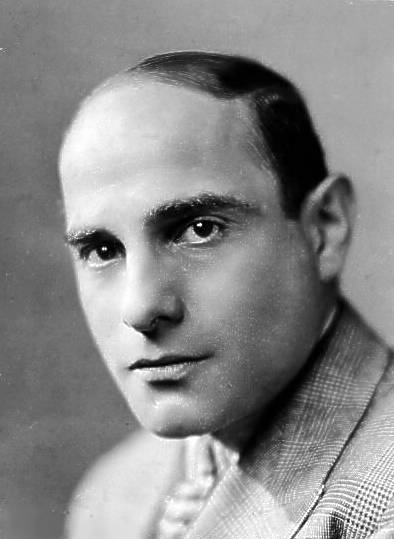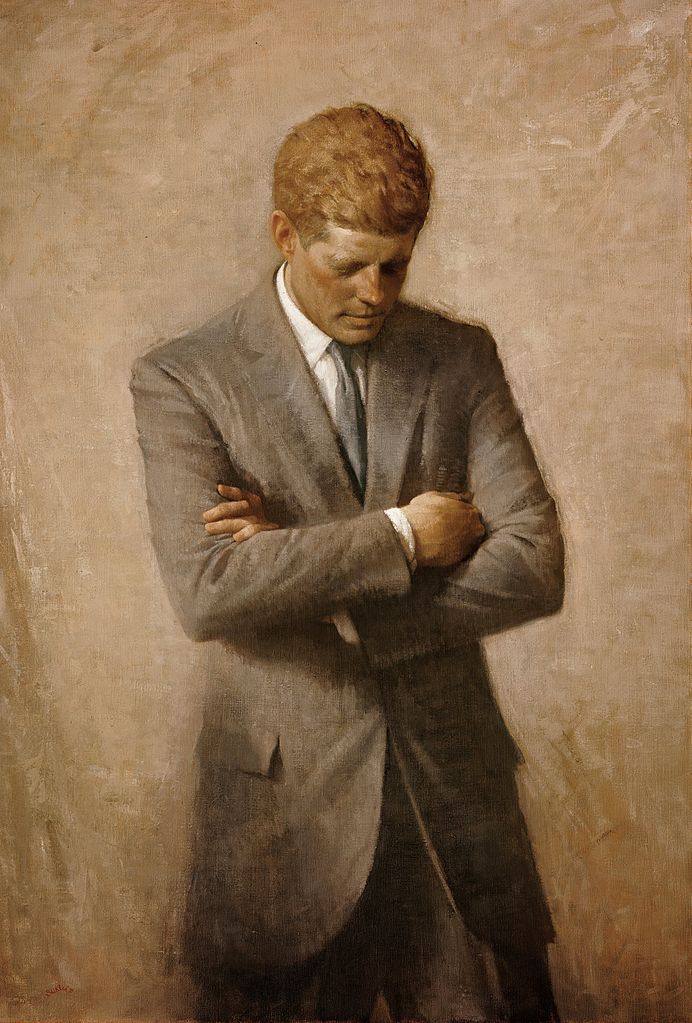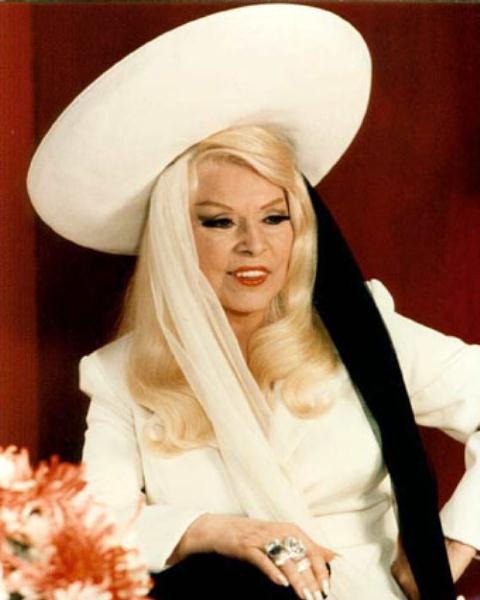November 22
ANDRÉ GIDE, French writer and Nobel laureate was born (d. 1951); French author and winner of the Nobel Prize in Literature in 1947. Gide's career spanned from the symbolist movement to the advent of anti-colonialism in between the two World Wars.
Known for his fiction as well as his autobiographical works, Gide exposes to public view the conflict and eventual reconciliation between the two sides of his personality, split apart by a straight-laced education and a narrow social moralism. Gide's work can be seen as an investigation of freedom and empowerment in the face of moralistic and puritan constraints, and gravitates around his continuous effort to achieve intellectual honesty. His self-exploratory texts reflect his search of how to be fully oneself, even to the point of owning one's sexual nature, without at the same time betraying one's values. His political activity is informed by the same ethos, as suggested by his repudiation of communism after his 1936 voyage to the Soviet Union.
In 1908, Gide helped found the literary magazine Nouvelle Revue Francaise (The New French Review). In 1916, Marc Allégret, 16, became his lover. He was the son of Elie Allegret, best man at Gide's wedding. Of Allegret's five children, Andre Gide adopted Marc. The two eloped to London, in retribution for which his wife burned all his correspondence, "the best part of myself," as he was later to comment. In 1918, he met Dorothy Bussy, who was his friend for over thirty years and who would translate many of his works into English.
In the 1920s, Gide became an inspiration for writers like Albert Camus and Jean-Paul Sartre. In 1923, he published a book on Fyodor Dostoyevski; however, when he defended homosexuality in the public edition of Corydon (1924) he received widespread condemnation. He later considered this his most important work.
BENJAMIN BRITTEN, British composer, conductor and pianist was born on this date (d. 1976); Britten's first compositions to attract wide attention were the Sinfonietta (Op.1), "A Hymn to the Virgin" (1930) and a set of choral variations A Boy was Born, written in 1934 for the BBC Singers. The following year he met W.H. Auden with whom he collaborated on the song-cycle Our Hunting Fathers, radical both in politics and musical treatment, and other works. Of more lasting importance was his meeting in 1936 with the tenor, Peter Pears, who was to become his musical collaborator and inspiration as well as his life partner.
In early 1939, the two of them followed Auden to America. There Britten composed Paul Bunyan, an operetta (to a libretto by Auden), as well as the first of many song cycles for Pears; the period was otherwise remarkable for a number of orchestral works, including Variations on a Theme of Frank Bridge (written in 1937 for string orchestra), the Violin Concerto, and Sinfonia da Requiem (for full orchestra).
Britten and Pears returned to England in 1942, Britten completing the choral works Hymn to Saint Cecilia (his last collaboration with Auden) and A Ceremony of Carols during the long sea voyage. He had already begun work on his opera Peter Grimes based on the writings of Suffolk poet George Crabbe, and its premiere at Sadler Wells in 1945 was his greatest success so far. However, Britten was encountering opposition from sectors of the English musical establishment and gradually withdrew from the London scene, founding the English Opera Group in 1947 and the Aldeburgh Festival the following year, partly (though not solely) to perform his own works. Grimes marked the start of a series of English operas, of which Billy Budd (1951) and The Turn of the Screw (1954) were particularly admired.
These operas share common themes, with that of the 'outsider' particularly prevalent. Having previously declined a knighthood, Britten accepted a life peerage on July 2, 1976 as Baron Britten, of Aldeburgh in the County of Suffolk. A few months later he died of heart failure at his house in Aldeburgh. He is buried in the churchyard of St Peter and St Paul's Church there. His grave lies next to that of his partner, Sir Peter Pears.
February House: W.H. Auden, Carson McCullers, Jane and Paul Bowles and Gypsy Rose Lee Under One Roof in Wartime America is a fascinating and entertaining 2006 history of Britten and Pears living in a communal house on Middagh Street in Brooklyn and well worth finding and reading..
Playwright JOE PINTAURO was born on this date (d: May 2018); Mr. Pintauro grew up in Queens, where he attended John Adams High School, and in East Northport, on Long Island. At Manhattan College in the Bronx, where he earned a bachelor’s degree, he studied business and marketing but also nurtured an interest in writing, contributing articles to the college’s newspaper and poetry to its quarterly journal.
The college, a Roman Catholic institution, was his first exposure to Catholic schooling, and he arrived there at a particularly emotional point. His mother was dying from cancer and by the time he graduated in 1953 he had decided to become a priest. He was ordained in Brooklyn in 1958.
He was assigned to parishes in the Flatbush and then Williamsburg sections of Brooklyn at a time when unemployment, gangs and drugs, not gentrification, were the issues of the day.
On his days off from his priestly duties he pursued his writing interests, joining in the Circle in the Square Theater drama workshop in Greenwich Village and workshops on poetry and cinema at Columbia University; at the same time, he was also studying for a master’s in American literature at Fordham University.
By the mid-1960s Mr. Pintauro grew restless in the priesthood and asked his bishop for permission to seek a job in the secular world. The request was granted in 1966 — the Official Catholic Directory changed his listing to “absent on leave” — and he landed a job at the advertising agency Ted Bates.
He worked on campaigns for Trans World Airlines and Kool cigarettes. A 1967 feature article about him in The Times ran under the headline “Parish Priest to Copy Writer.” He later moved to Young and Rubicam. He also became a published poet; his 1968 volume, “To Believe in God,” illustrated by Sister Mary Corita Kent, sold particularly well and brought him a burst of renown that included television appearances.
His novel “Cold Hands” was published in 1979. In 1982 Circle Rep staged his play "Snow Orchid", about a family in turmoil, with a cast that included Peter Boyle and Olympia Dukakis. The company opened its fall season in 1989 with his drama "Beside Herself" with William Hurt, Lois Smith and Calista Flockhart in the cast.
“The Dead Boy” (1990) was about a church sex scandal and has had readings or productions all over the United States and abroad. Mr. Pintauro addressed the grim reality of AIDS in “Raft of the Medusa” (1991), whose title invoked the Théodore Géricault painting of the aftermath of a shipwreck, a raft full of the dead and the living.
Pintauro died on May 29, 2018, at his home in Sag Harbor, N.Y. He was 87. His husband, Greg Therriault, said the cause was prostate cancer.
On this date the American dancer and writer NICHOLAS DANTE was born (d. 1991). Best known for the hit musical A Chorus Line. Born Conrado Morales in New York City to Puerto Rican parents, Dante's early career was spent dancing in the chorus of Broadway musicals such as Applause and Ambassador. In 1974, he was approached by friend Michael Bennett who invited him to the sessions which led to the basis of material for the book of a musical about Broadway "gypsies," the dancers who serve as a backdrop for the leading performers.
Eventually, collaborating with James Kirkwood, Jr., the result was A Chorus Line, a groundbreaking musical which earned him the 1976 Tony Award and Drama Desk Award for Best Book of a Musical and the Pulitzer Prize for Drama. In particular, the story of Paul, the homosexual Puerto Rican dancer whose early career consisted of working in a drag show, was based primarily on Dante. The actor who originated the role on the famous monologue, Sammy Williams, won a Beast Featured Actor in a Musical award in 1976 for the role. Dante himself went on to play the role in later mountings of the show.
He also authored a screenplay, Fake Lady, and a stage musical based on the life of entertainer Al Jolson entitled Jolson Tonite, but never again achieved the success he did with A Chorus Line. Dante died on May 21, 1991 from AIDS-related complications in New York City.
BILLIE JEAN KING, tennis champion and feminist icon, born; King has been an outspoken advocate against sexism in sports and society. The tennis match for which the public best remembers her is the "Battle of the Sexes" in 1973, in which she defeated Bobby Riggs, a former Wimbledon men's champion who had been ranked the "World's Number 1" tennis player for the years 1941, 1946 and 1947. A feature film by the same name (“Battle of the Sexes”) starring Emma Stone and Steve Carrel in the title roles recently opened and portrays the story of the 1973 match between King and serial hustler, Bobby Riggs.
King married Lawrence King in 1965. In 1971, she had an abortion. King said in an interview with 60 Minutes in 1972 that she and her husband were not ready to have children at that time because both were busy with their careers and could not devote time to children.
In 1971, King began an intimate relationship with her secretary Marilyn Barnett. King acknowledged the relationship when it became public in a lawsuit ten years later, becoming the first prominent American athlete to confirm having a gay relationship. King said that she decided to play on the tour in 1982 and 1983 solely because she needed money to pay the attorneys who defended her in that lawsuit and that she really did not want to play at age 38 and 39. In 1987, she divorced Lawrence King. On a PBS program on March 20, 2005, she discussed the fact that her sexual side has been the greatest struggle of her life. She pointed out that she came from a personally conservative background, which worked against her being open about her sexual orientation, as contrasted with less inhibited players such as Martina Navratilova.
Friends with singer Elton John, the song "Philadelphia Freedom" is a tribute to King. On a PBS program, John talked about how he brought a demo copy of the record to play for her right after he had recorded it.
Charles M. Schulz, creator tor of the Peanuts comic strip, was another of King's admirers and close friends. Schulz referenced King several times in Peanuts over the years. In one strip, Peppermint Patty tells Marcie, "Has anyone ever told you that when you're mad, you look just like Billie Jean King?"
In 2000, King received an award from the GLAAD, an organization devoted to reducing discrimination against gays, Lesbians and bisexuals, for "furthering the visibility and inclusion of the community in her work." The award noted her involvement in production and the free distribution of educational films, as well as serving on the boards of several AIDS charities. King currently resides in New York and Chicago with partner Ilana Kloss.
MAE WEST, American actress and writer died (b. 1893); Famous for her bawdy double entendres, West made a name for herself in vaudeville and on the legitimate stage in New York before moving to Hollywood to become a comedian, actress and writer in the motion picture industry. One of the most controversial stars of her day, West encountered many problems including censorship. When her cinematic career ended, she continued to perform on stage, in Las Vegas, in the United Kingdom, on radio and television,and recorded rock albums. Reinvention, sex, breaking boundaries...Mae West did it all first, before there were Madonnas or Kardasians. It boggles the mind to imagine what West could have done with the internet and a smartphone.
Her famous walk was said to have originated in her early years as a stage actress after she saw female impersonator Bert Savoy perform. West had special eight-inch platforms attached to her shoes to increase her height and enhance her stage presence.
Eventually, she began writing her own risqué plays using the pen name "Jane Mast." Her first starring role on Braodway was in a play she neatly titled Sex, which she also wrote, produced and directed. Though critics hated the show, ticket sales were good. The notorious production did not go over well with city officials and the theater was raided with West arrested along with the cast.
She was prosecuted on morals charges and, on April 19, 1927, was sentenced to ten days in jail for public obscenity. While incarcerated on Roosevelt Island, she was allowed to wear her silk underpants instead of the scratchy prison issue and the warden reportedly took her to dinner every night. She served eight days with two days off for good behavior. Media attention to the case enhanced her career.
Her next play, The Drag, was about homosexuality and alluded to the work of Karl Heinrich Ulrichs. It was a box office success but it played in New Jersey because it was banned from Broadway. West regarded talking about sex as a basic human rights issue and was also an early advocate of Gay and Transgender rights. She famously told policemen who were raiding a Gay bar, "Don't you know you're hitting a woman in a man's body?", a daring statement at a time when homosexuality was not accepted. During her entire lifetime she surrounded herself with Gay men and stood up for Gay rights at any and every opportunity.
In the 1950's, Mae West rented a rather lavish apartment at The Ravenswood, one of Los Angeles's most prestigious apartment houses. When she discovered that one of her male employees had been refused admittance to the building because he was black, she bought the entire building.
West continued to surround herself with virile muscle men for the rest of her life, employing companions, bodyguards and chauffeurs. She would occasionally make appearances at Hollywood parties and have luminaries and friends in to visit at her apartment in the Ravenswood. At one such party West astonished guests when she got up and performed a belly dance. They were amazed at her youthful appearance and incredible charisma. It became very fashionable to have West attend a party.
This writer encountered Ms. West on two separate occasions in Los Angeles. Once at a dinner where she was being honored by After Dark Magazine as "Star of the Year" for her final performance in Sextette (the movie posters proclaimed "Mae West is Coming!") and her role as Leticia Van Allen , in Gore Vidal's Myra Breckinridge.
The other time was in the waiting room of my dentist.
Turns out Mae and I went to the same dentist. I had an appointment and was sitting in the waiting room writing in a journal I was keeping. I heard the door to the exam rooms open, and thinking I was being called in, looked up to see none other than Mae West, dressed to the nines, and escorted by an elderly (all of 50 years old, I imagine now) coming out. I stood and extended my hand, saying something like "Ms. West, I have been a fan all my life!" She took my hand, and didn't let go. In fact she pulled me closer and stroked my cheek with the back of her hand, responding, "Oooohh...that's so sweet. Mmmmm....you're very cute." I had my journal in my hand so I quickly asked if she would give me an autograph. "Ya gotta pen?" Of course I did, and I handed the journal and the pen to her. She was so short!
She then proceeded to leaf through my journal, turning a page at a time, pausing at sketches I had made, and reading my scratchings here and there. She found a blank page and signed her name with great flourish, handed both the pen and the book back to me, and, as she moved to leave, turned to me and said, "You should come up and see me sometime." It was all I could do not to swoon right there.
On this date the parliament of BURUNDI, one of the ten poorest countries in the world, and one of the smallest (at only 11,000 square miles--about the size of Belgium) unanimously voted to outlaw homosexuality. The irony here is that on the very same date the parliament also adopted a new set of laws abolishing the death penalty for the first time in the troubled nation’s history. The sweeping law was seen as an important reform. It incorporated parts of international law on genocide, war crimes and crimes against humanity. It includes important safeguards against torture as well as sexual violence against women and children.
But the new laws also criminalize homosexuality.
The law was overwhelmingly passed by Burundi’s Parliament, 90-0 with ten abstentions. It still needs to be ratified by the Senate and signed by President Pierre Nkurunziza, which is seen as a mere formality. Nkurunziza is described as an ex-Hutu rebel leader and born-again Christian, whose presidency has been marred by accusations of assassinations and torture. Burundi is still emerging from a twelve-year civil war that engulfed neighboring Rwanda.
But its nice to know they took the time out to outlaw homosexuality. Good luck with that.
Subscribe to Gay Wisdom
Would you like to have Today in Gay History (aka Gay Wisdom) sent to you daily?

